Exponential Convergence of Primal-Dual Dynamical System for Linear Constrained Optimization
Luyao Guo, Xinli Shi,, and Jinde Cao,
Dear editor,
Primal-dual dynamics (PDD) and its variants are prominent firstorder continuous-time algorithms to determine the primal and dual solutions of a constrained optimization problem (COP). Due to the simple structure, they have received widespread attention in various fields, such as distributed optimization [1], power systems [2], and wireless communication [3]. In view of their wide applications, there are numerous theoretic studies on the convergence properties of PDD and its variants, including the exponential stability analysis [4]–[9].
In [4], an asymptotically convergent PDD is proposed to solve the optimization problems with equality and inequality constraints.Especially for equality COPs, the exponential convergence of the proposed PDD is established under the assumption that the equality constraint matrix has a full row rank. For COPs with linear equality and inequality, PDDs with exponential convergence are respectively designed under the full row rank assumption in [5]. Besides, an extended augmented PDD is provided to solve linear equality and nonlinear inequality COPs, and the semi-global exponential stability is established in [6]. To solve a special class of COPs with separable cost function and equality constraint, [7] provides a Lagrangianbased PDD, and [8] gives a partial PDD. Moreover, with full row rank assumption, their exponential convergence are proved. In [9], a fixed-time convergent PDD has been proposed for equality COPs.
In this letter, we investigate a modified primal-dual dynamical system (PDDS) for COPs with linear equality and inequality constraints, and establish the exponential convergence of corresponding PDDS under weaker conditions. The obtained theoretical results without requiring a rank condition on equality constraint matrix can be used to improve the convergence results of[8] and [9].
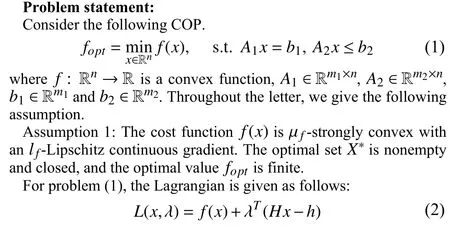
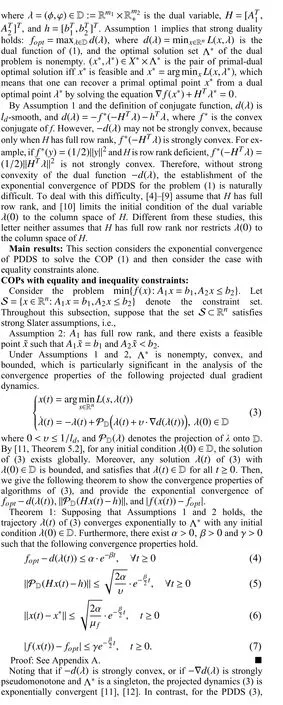
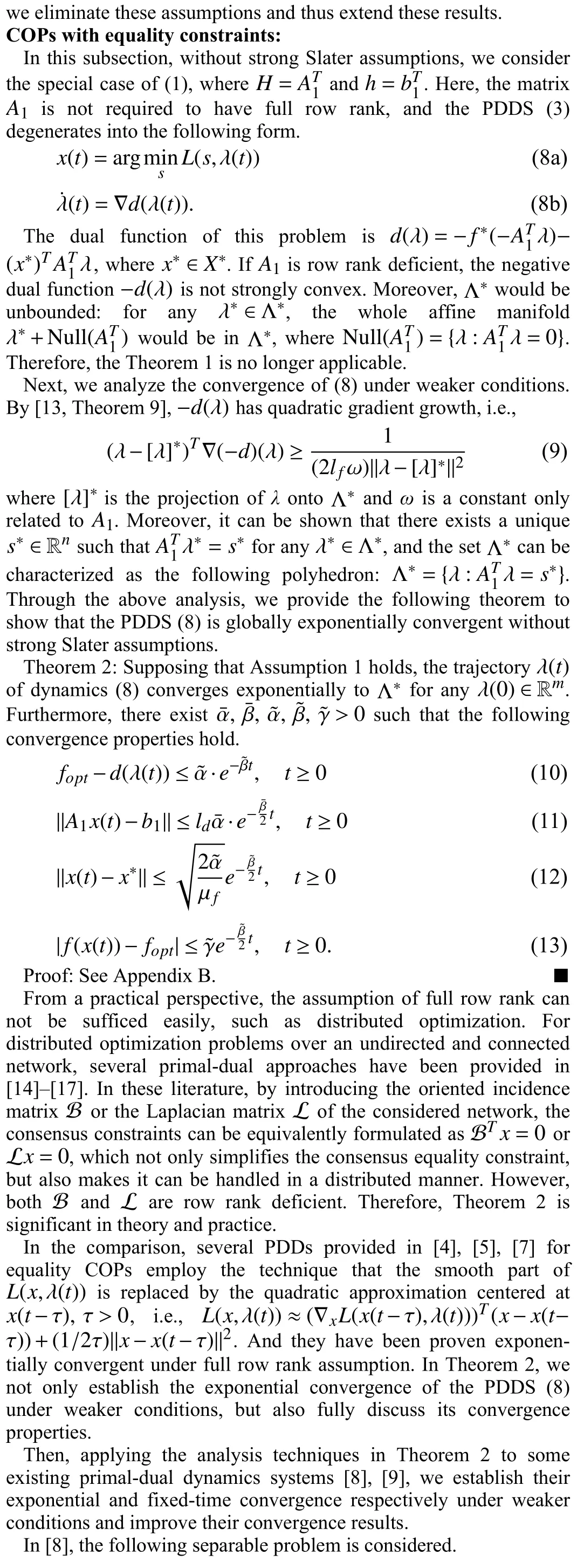
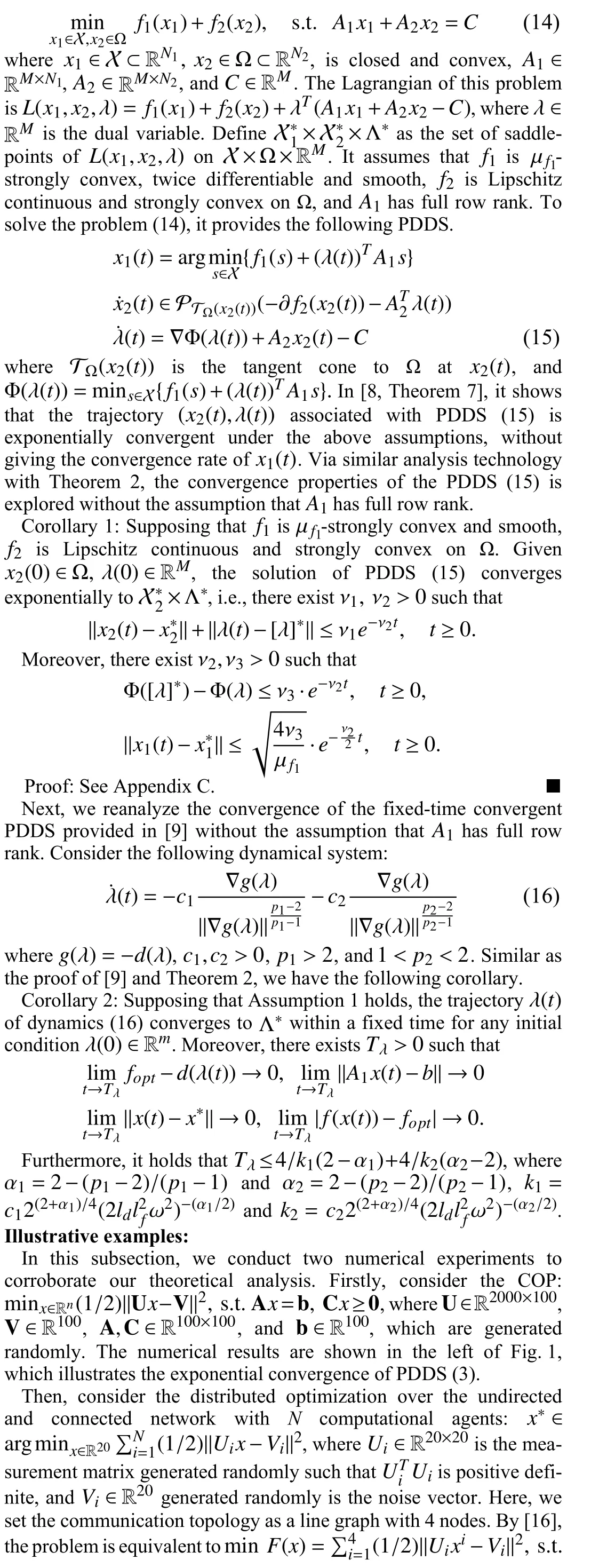
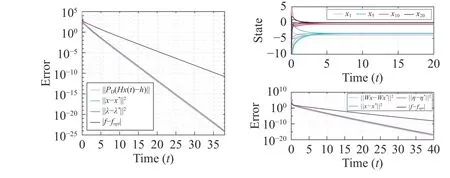
Fig. 1. The numerical results of considered examples.
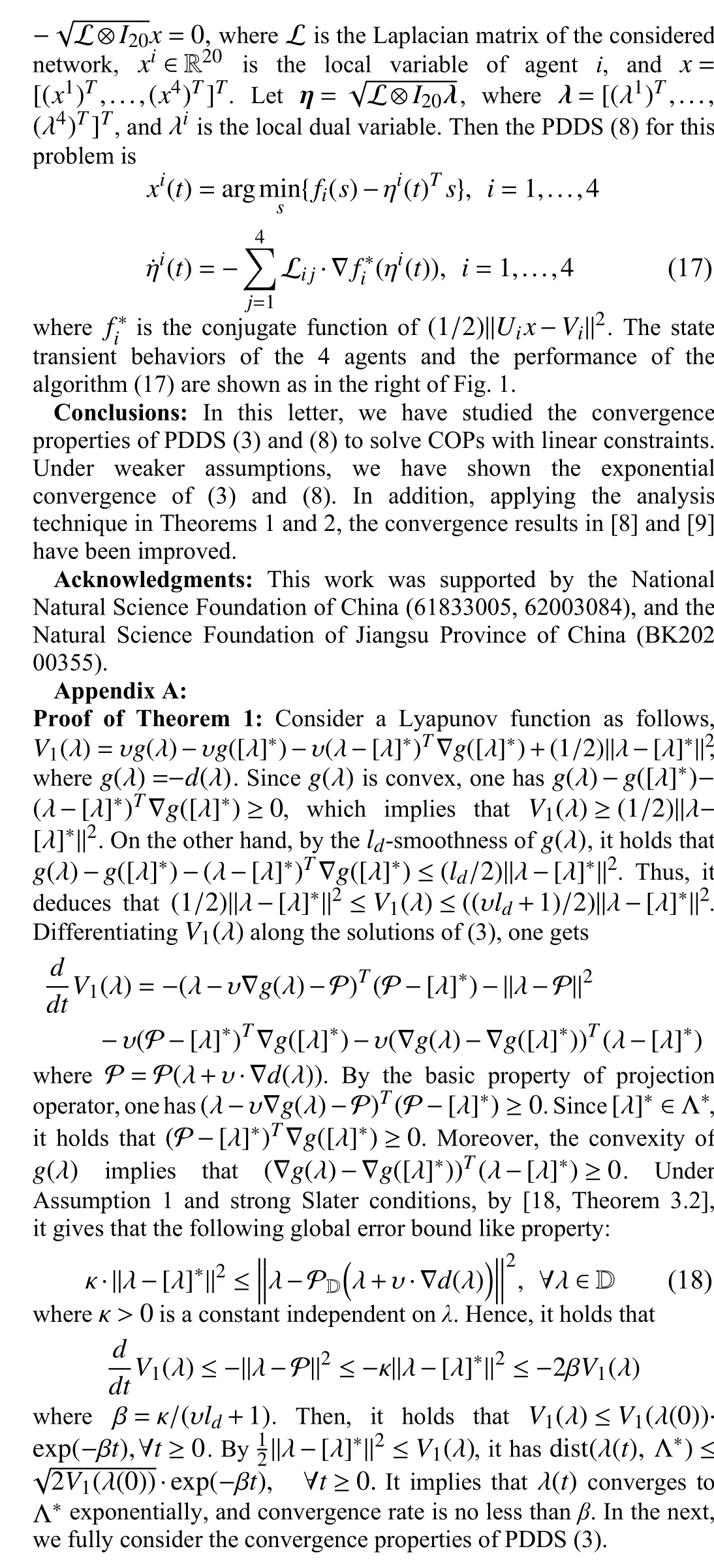
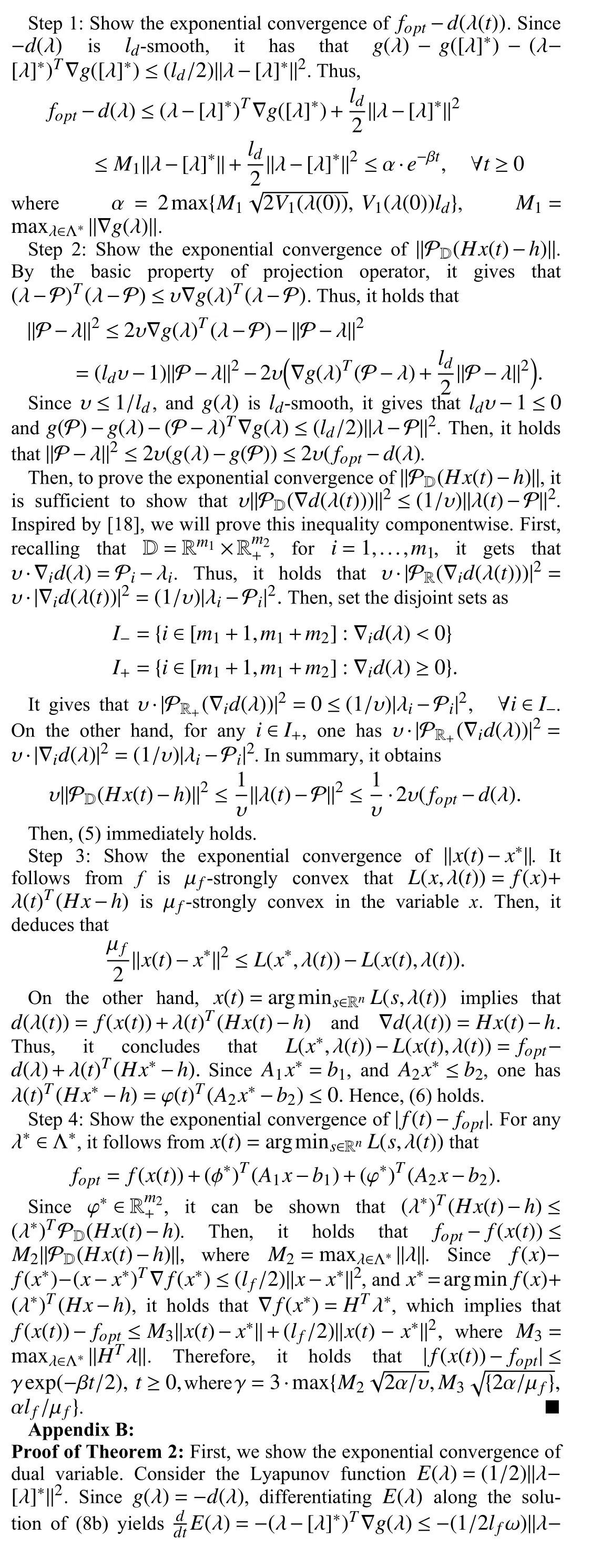
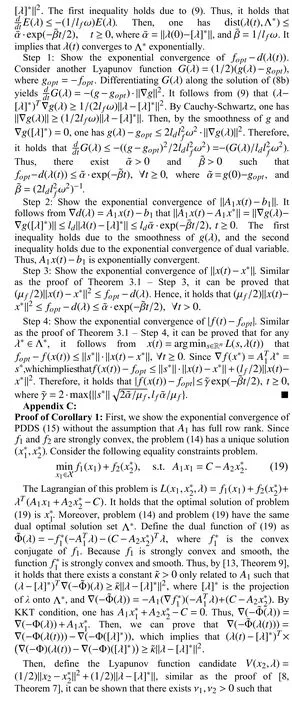

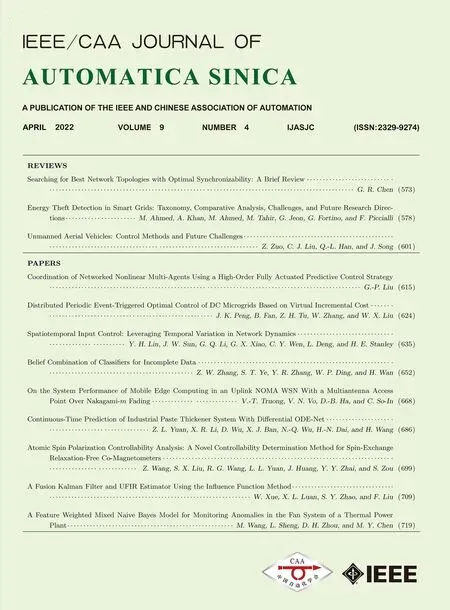 IEEE/CAA Journal of Automatica Sinica2022年4期
IEEE/CAA Journal of Automatica Sinica2022年4期
- IEEE/CAA Journal of Automatica Sinica的其它文章
- Energy Theft Detection in Smart Grids: Taxonomy,Comparative Analysis, Challenges, and Future Research Directions
- On the System Performance of Mobile Edge Computing in an Uplink NOMA WSN With a Multiantenna Access Point Over Nakagami-m Fading
- Continuous-Time Prediction of Industrial Paste Thickener System With Differential ODE-Net
- Unmanned Aerial Vehicles: Control Methods and Future Challenges
- A Braille Reading System Based on Electrotactile Display With Flexible Electrode Array
- A Short-Term Precipitation Prediction Model Based on Spatiotemporal Convolution Network and Ensemble Empirical Mode Decomposition
